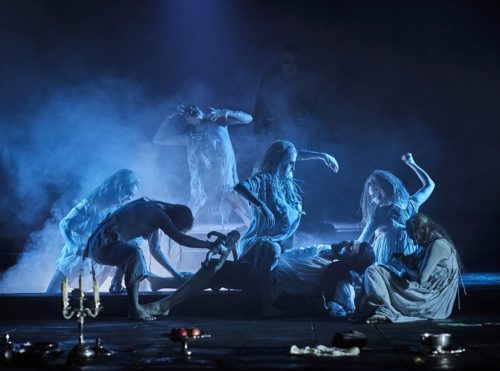
Music/ Mozart’s “Don Giovanni”. Opera Australia conducted by Xu Zhong. At Sydney Opera House, until February 27. Reviewed by HELEN MUSA.
OPERA Australia’s revival of British director David McVicar’s sumptuous production of “Don Giovanni” is first and foremost, under the baton of Chinese maestro Xu Zhong, a feast of exquisite music, even as it plays out the familiar tale of the licentious nobleman who chalks up women like goals — “640 women and girls in Italy, 231 in Germany, 100 in France, 91 in Turkey, but in Spain, 1003.”
Make no mistake about it, this Mozart favourite is a long opera indeed and even a director as inventive as McVicar tests the patience of a contemporary audience over its three-and-a half-hour duration.
To be sure, the set designed by Robert Jones, magnificent, dark and sombre though under-lit, drew audible gasps of admiration from the house, especially when its parts were moved around to suggest variously a palatial home, the village square and the cemetery where the Don’s nemesis, the Commendatore, is buried.
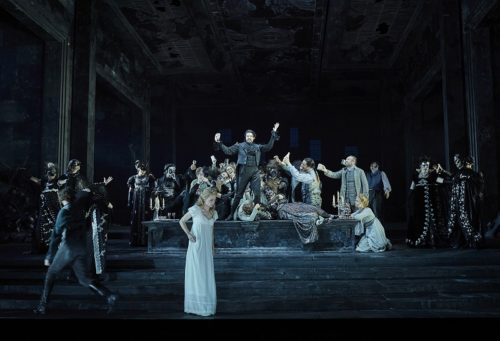
The director honours Mozart’s idea of a “dramma giocoso” (drama with jokes) with the comedy lines fully exploited and an irreverent approach to the three moralistic characters, the faithful Don Ottavio (Juan de Dios Mateo) the frigid Donna Anna (Eleanor Lyons) and the lovelorn Donna Elvira (played with force and conviction by Jane Ede), who hover around the stage most of the night as a baleful, silly trio of Furies.
In no way is this a tragedy, for the central character of Don Juan, the world’s most legendary libertine and blasphemer, remains unrepentant even while being dragged to Hell. He is also a total mystery, as the composer and librettist give us not a clue as to his motivations.
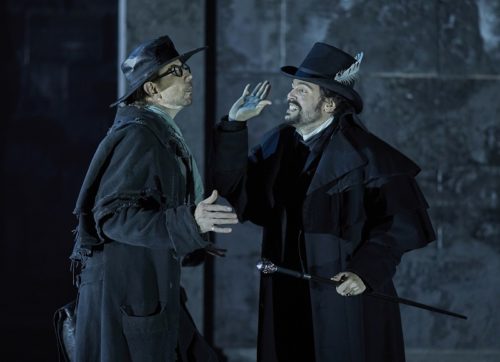
However beautifully he sings, Italian tenor Luca Micheletti lacks a sense of mischief as the Don, even in the balcony scene where he swaps clothes with his manservant Leporello, played with far more vigour and tomfoolery than his master by the taller OA bass-baritone, Shane Lowrencev — he often steals the show.
McVicar’s is a sexy “Don Giovanni” with village wench Zerlina, played with superb sensitivity by Anna Dowsley, quite often in real peril and Micheletti at his best in the seductive duet, “There we will entwine our hands,” where for all his atheistic cynicism, in a gentle seductive moment he almost succeeds in having his wicked way.
Zerlina’s subsequent submissive “Beat, O beat me, handsome Masetto” to her slighted fiancé (Richard Anderson) is so full of sexual innuendo that it works, even to a modern audience.
A dramatic problem with “Don Giovanni,” lacking show-stopping arias that reveal hidden depths, is caused by the surtitles, which mean that we can see the entire libretto, endless repetitions and all. This means that much of Act II, with all its horseplay, seems unending, saved only by the exquisitely refined music in the trios.
Given that the subtitle of the work is “The Rake Punished”, revival director Matthew Barclay makes sure that Giovanni comes to his swaggering end in a revolting supper scene where food ends up all over the stage.
This acts as a prelude to his encounter with the stone statue of the murdered Commendatore (Gennadi Dubinsky), whose dark tones draw him to his just punishment.
Dramatically, this is where “Don Giovanni” should end, but Mozart wants to have the last word in a scene usually omitted until the 20th century, and so what was already a long evening lumbered to its close as the moral characters mop up.
Who can be trusted?
In a world of spin and confusion, there’s never been a more important time to support independent journalism in Canberra.
If you trust our work online and want to enforce the power of independent voices, I invite you to make a small contribution.
Every dollar of support is invested back into our journalism to help keep citynews.com.au strong and free.
Thank you,
Ian Meikle, editor
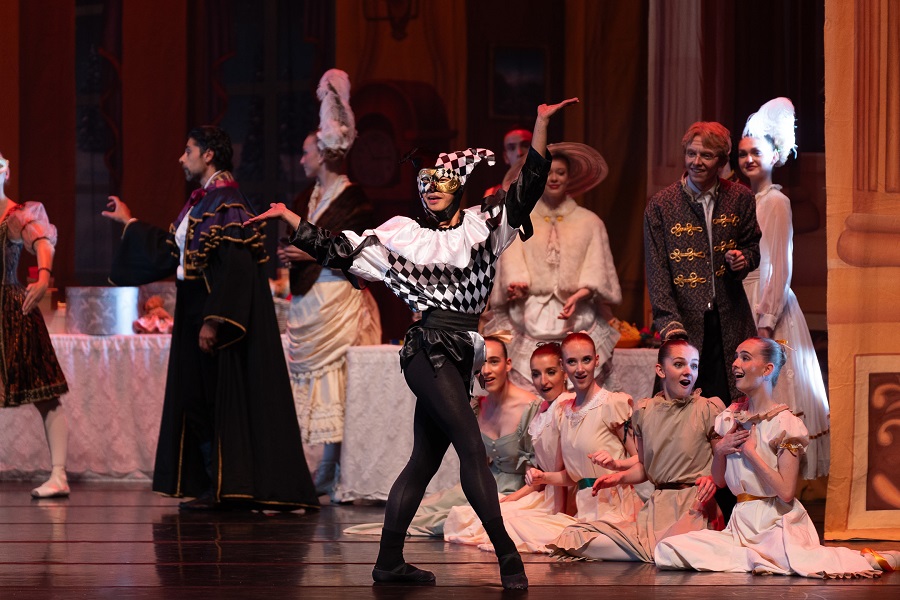
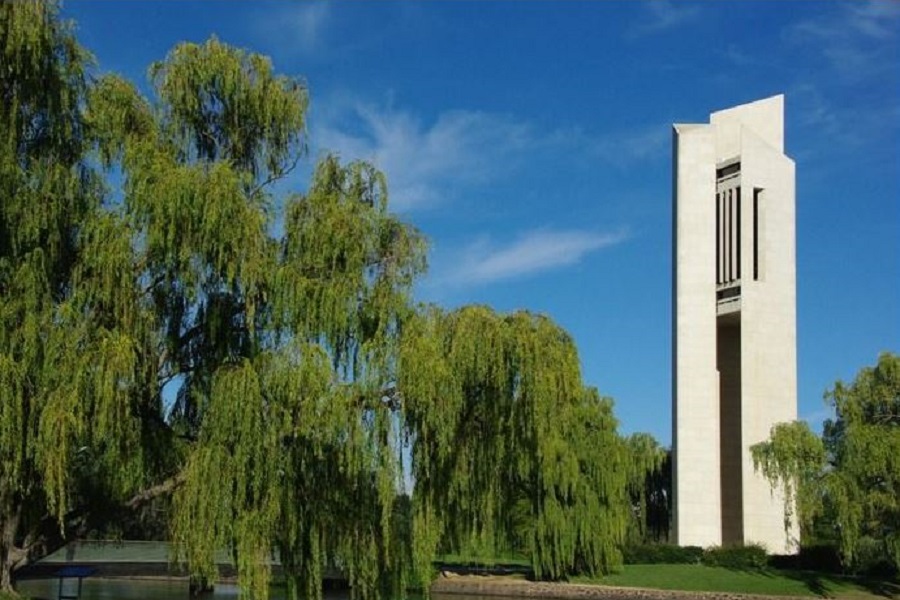
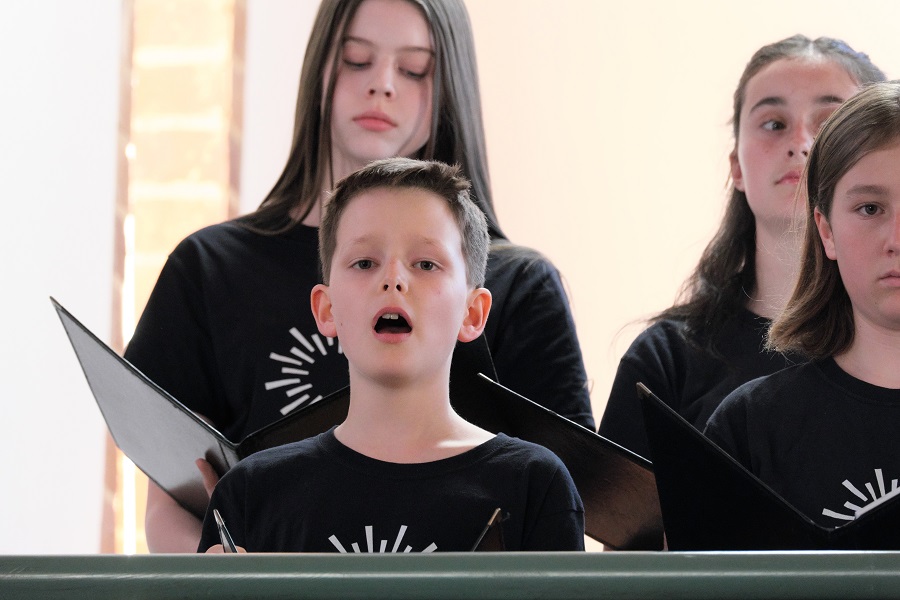

Leave a Reply